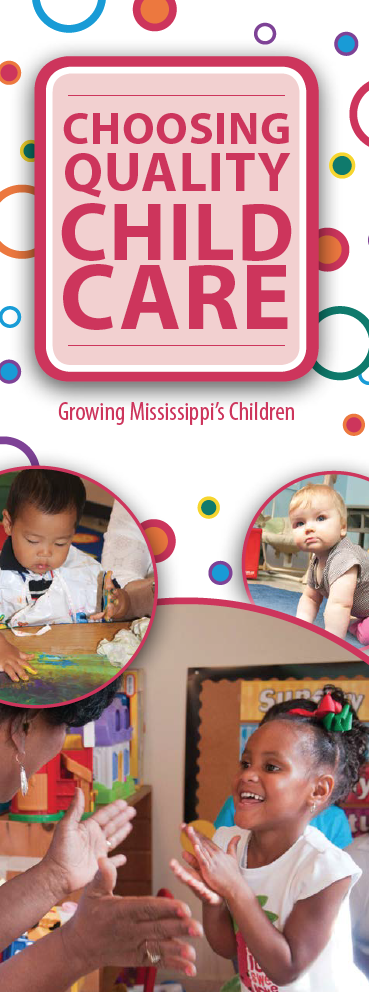Choosing Quality Child Care
Here are 4 steps to finding quality child care:
Start early
Look as far in advance as you can. No matter what type of care you are considering—a child care center or care in someone’s home—finding the right option can take time. We can help.

Visit & ask questions
Visit child care programs before you make a choice. You know your child best. To help you decide where your child will be safe and happy, ask questions about these important things:
- Adult-to-Child Ratio - How many children does each adult supervise? You want your child to get plenty of attention. The fewer children for each caregiver, the better the situation is for your child. The younger the child, the more important this becomes.
- Group Size - How many children are in a group? These are the recommended ratios of children to teaching staff: Infants—no more than 8 children in a group, with 2 teaching staff; Toddlers—no more than 12 children in a group, with 2 teaching staff; and 4-year-olds—no more than 20 children in a group, with 2 teaching staff.
- Caregiver Qualifications - Ask about the caregivers’ training and education. Caregivers with degrees and/or special training in working with children will be better able to help your child learn.
- Turnover - How long have the caregivers been working in their current position? It is best if the children can stay with the same caregiver for at least a year.
Make a choice
Think about what you saw at each visit and make the best choice for yourself and your child. Use the checklist in this brochure as a guide.
Stay involved
You and your child’s caregiver are partners. Visiting and participating in events at the child care center will send a strong message. It will tell your child and the caregiver that you are interested in what your child is doing and learning.
You want your child to succeed in school and in life. Quality child care is a first step to school success. Studies show that children who get this care enter school with better math, language, and social skills. These skills will help your child do well in school. When your child has safe, loving, and stimulating care that you can count on, you don’t have to worry while you are at work. You know your child is getting the kind of care needed to be healthy, happy, and ready for school.
Check it out
- Does the person who will be caring for your child have special training in early childhood education, first aid, and CPR?
- How long has the caregiver been in the same program or provided child care in the home?
- How many children does each caregiver supervise? Is there a low child-to-adult ratio?
- If there is more than one caregiver in the same setting, is the total number of children in the group (or group size) still fairly small?
- Is the child care center licensed and inspected by the state of Mississippi?
- Does the caregiver welcome drop-in visits, parental ideas, and involvement? Does the caregiver get on the children’s eye level and give them a lot of attention and encouragement?
- Is there a daily schedule with planned activities for children to do, as well as plenty of time for free play?
- Does the place look clean and safe, and is hand washing done often?
- Will your child be happy there?
Helpful Hint:
Take this checklist with you as you visit each caregiver facility.
M1536 (rep-300-08-18)
Distributed by Louise E. Davis, Ph.D., Extension Professor, Child and Family Development.
The Mississippi State University Extension Service is working to ensure all web content is accessible to all users. If you need assistance accessing any of our content, please email the webteam or call 662-325-2262.


